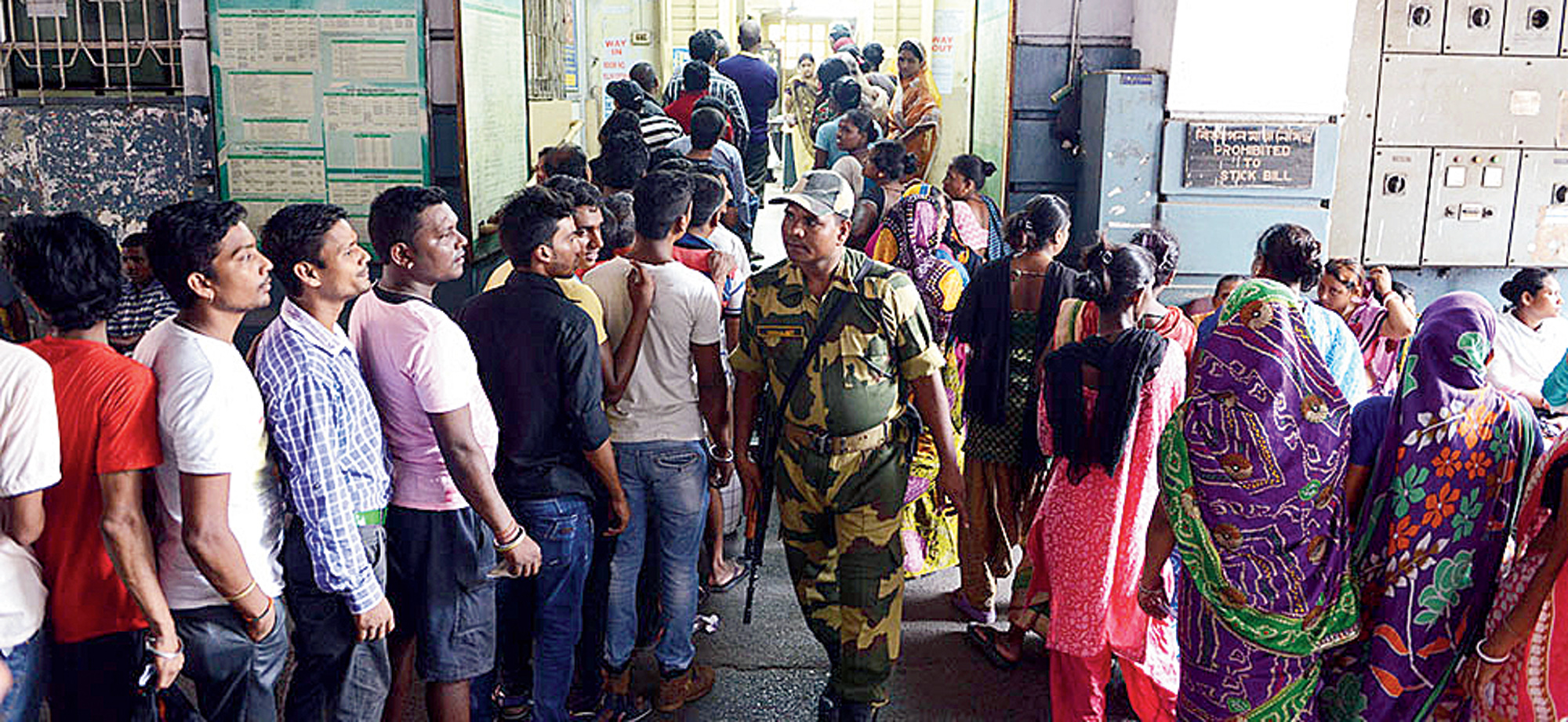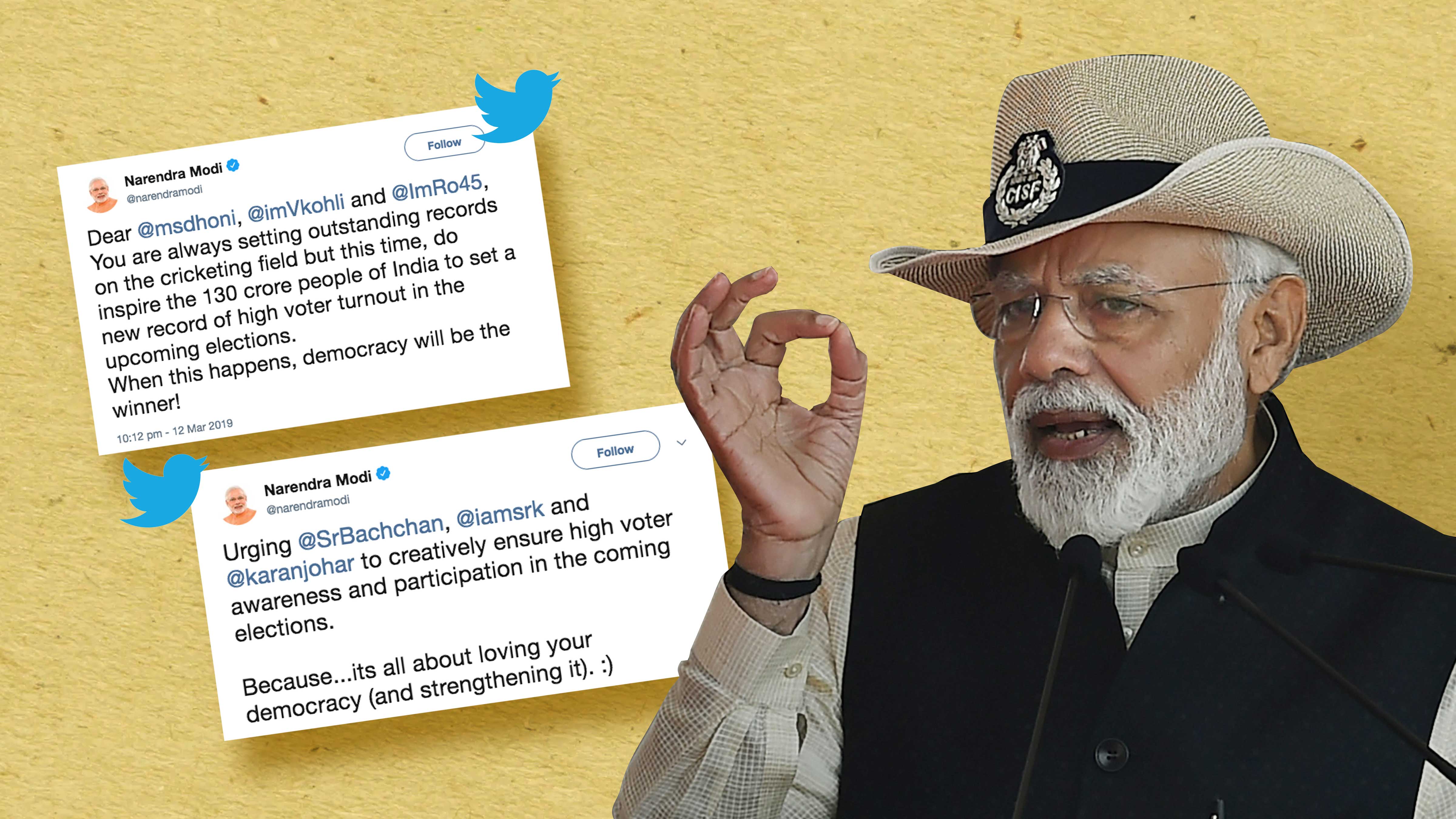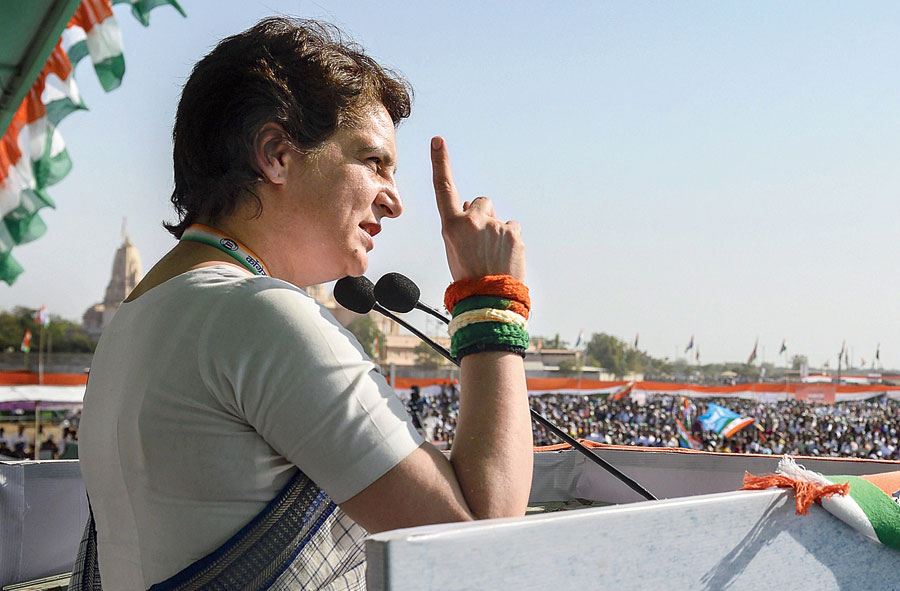The parliamentary elections have been announced — the festival of democracy, as Narendra Modi has quipped. This celebration presupposes the power of the ordinary citizen to bring a sitting government to task for its failures, or to re-endorse its work by voting it back into office. This is the first-order feature of democratic freedom based on the plurality of governments — the possibility of change, of having different people in power with different policies and different philosophies. In India we have been celebrating democratic elections for decades now. We have witnessed many changes in government and personalities at the helm. We have also witnessed large amount of violence and bloodshed associated with electoral hostility. Over the decades there has been widespread foul play during elections from booth capturing to false voting, and the terrorizing of voters so that they stay away. In spite of these aberrations, pundits have proclaimed that democracy works in India with all its sores and wounds — people pour out to exercise their franchise and, even if illiterate and malnourished, they behave maturely by quietly changing governments. If plurality of governments is the first-order hallmark of a vibrant democracy then it necessarily implies that the voters are diverse too. This is the second-order diversity required in a well-functioning democracy. What would happen if all voters were homogeneous and always made the same choices all the time? There would not be any horse race if there were no differences in opinions. The Indian voter is apparently capable of making well-informed choices. The magic works, albeit with some collateral damage.
What is the basis of the information on which rational choices are made? One obvious piece of information a voter would take into account is how the person is affected, or is likely to be affected, if a particular group of politicians forms the next government. Would one’s economic lot improve? Would taxes be lower? Would there be lower prices, or greater facilities for health and education? Would new job opportunities open up? Economic reasons are supposed to play an important role in the voting choice, especially in a poor country with widespread deprivation.
In this regard, there are two questions that warrant some reflection. The first question is: what are the sources of information about objective data pertaining to macroeconomic opportunities? The second question is about discerning differences in the programmes of different parties and political formations, and how they get manifested before the citizen. The answer to the first question is, obviously, the media. In today’s world of newspapers, television channels, internet, Facebook and WhatsApp, the media present an overwhelming amount of information. The media are supposed to be engaged in a continuous scrutiny of power at all levels. They are also supposed to present their findings to citizens in an unbiased fashion. Usually, the facts of the news are distinctly different from how these facts are interpreted — the headlines and the commentary that follow. For such information, the ordinary citizen has to depend on the media. A voter cannot get to know about any misuse of power or scams or corruption at the highest level in any other way. Regarding the second question, the personal information and perception of events in one’s immediate surroundings in the main source. How do different parties behave, what programmes do they support and finance, what do they do about infrastructure, to what extent are they corrupt? The evening neighbourhood gossip in a local tea-shop can be a good source of reasonably accurate information.
Consider the media first. The media houses are business concerns that must cover their costs to say the least, if not make healthy profits. They are often owned by big business houses. The source of income for a media house is advertisement revenue. This revenue comes from business organizations. If a media house is starved of advertisement revenues it will be in dire straits and may even have to wind up unless the owners are brave enough to go for crowd sourcing where interested readers contribute funds to keep the newspaper or the television channel alive. Business houses, on the other hand, always try to be in the good books of the ruling government. The ruling government can force companies through subtle methods to starve media houses. Hence what the media house can report and interpret is restricted by the economics of a capitalist market economy. The upshot of all this is simple, something we are witnessing in India today: the government through direct or indirect means controls and influences the news and its interpretation. The ordinary voter gets overwhelmed by news that is contradictory across sources, and news that often constitutes sheer lies and half-truths. Hence the assertion that voters are well informed about the big picture of the economy is unfounded.
Regarding the second source of information obtained from local sources, first-hand evidence and experiential perceptions, this is usually based on economic projects and programmes and an understanding about the efficiency and honesty of the local faces of the larger organization of the political party. Some social issues could also play a part — one’s identity, such as that of caste, can form a shared bond of trust between the voter and the candidate. On this it can be seen that since the opening up of the economy in 1991 there is hardly any perceptible difference in the programmes of the major political parties. The Congress as well as the Bharatiya Janata Party, along with powerful regional parties, give opportunities to large business houses to grow and consolidate their fortunes. Anything or anybody foreign is always preferred to local — from investors to advisors. However, poverty is a nuisance that needs to be covered up as much as possible with large projects that focus on ‘garibi hatao’ through a variety of different projects with ever-changing names such as the hundreds of ‘yojanas’ and ‘abhiyans’. Hence there is very little to choose from the populist policies of the major political formations in India today. The local set of information that the voter acquires is very much the same, leaving little effective choice to the citizen. The voter is left with incomplete, fuzzy information at the macro level, and very similar repetitive data at the micro level to choose from.
Faced with a large volume of information, the voter faces a problem of finding the truth or at least a set of information one can reasonably rely upon. This becomes an extremely complex task. Psychologically, there are two or three alternative closures possible to this difficult decision. The first tendency is to deny the existence of the complex problem totally. This breeds cynicism and apathy. Nothing matters. Picking randomly is as good as a well-informed choice. The second reaction is to simplify the complexity by bringing it down to a few anecdotal stories — the candidate helped me personally once, the candidate is learned, or rich, or belongs to my caste, or he is a good-looking film star. Voting is done based on some reason, but that is not political in judgment. The third closure to the decision is to look for a messiah — a charismatic leader. One leaves the truth to be defined by that person. India now has a leader who is a good orator and has charisma. His party has carefully crafted a new narrative of India which is homogeneous, dominated by a majoritarian set of beliefs, where minorities are second-class citizens. Friends and enemies are defined in black and white — if one is not with the leader one is dubbed an enemy of the State. This narrative is bent on decisively destroying the diversity of the electorate. If that diversity goes, then the first-order plurality of democratic choice will be necessarily under serious threat. This election will determine the future of the political experiment called India.
The author is former professor of Economics, IIM Calcutta












